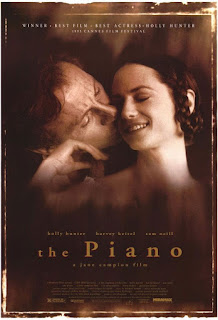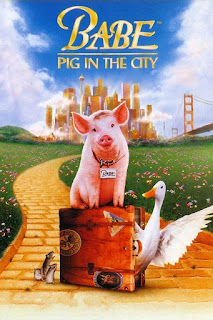June 8th: ALI (Michael Mann, 2001)
A transformative decade in the life of boxer Cassius Clay, who won the Heavyweight title as an underdog, converted to Islam and became Muhammad Ali, and lost his license after protesting the Vietnam War, all while enduring racism and becoming increasinly involved in the Civil Rights Movement.
During the height of his popularity in 1977, Muhammad Ali played himself in the biopic The Greatest. Producer Jon Peters (Batman, Rain Man) sought to make a new film of Ali's life in the early 1990s, but it wasn't until the success of Oscar-winning documentary When We Were Kings that development gained traction. Directors interested in the project included Spike Lee, Oliver Stone, Barry Sonnenfeld, Ron Howard, and Norman Jewison (who would wind up making The Hurricane instead).
By the end of the 90s a script by African American writer Gregory Allen Howard (Remember the Titans) was heavily rewritten, and Will Smith slated to star. After the success of his political thriller The Insider, director Michael Mann became involved, and along with Oscar-winning writer Eric Roth rewrote the script again, reducing the time span of the original concept to a critical 10-year period during the tumultuous 1960s and 70s.
Smith spent a year in preparation, including long daily training with boxing coaches, studying the religion of Islam, and receiving dialect instruction (particularly from Baptist ministers) to approximate Ali's unique vocal delivery. He eventually weighed in at 215 pounds, the same as Ali and 35 pounds heavier than his normal weight.
In addition to Smith, Mann brought in former collaborator and Oscar-winner Jon Voight (Heat, Midnight Cowboy ) to play iconic sports announcer Howard Cosell, who had a noteworthy media relationship with Ali. Others in the cast include Jamie Foxx as colorful trainer Drew Bundini Brown, Ron Silver as trainer Angelo Dundee, Mario Van Peebles as Malcolm X, Jada Pinkett Smith as Ali's wife Sonji, and Jeffrey Wright as Ali's personal photographer/biographer Howard Bingham.
Mann, consistently pursuing modern approaches to cinematography, hired Emmanuelle Lubezki, who had recently found critical favor with his work on Tim Burton's Sleepy Hollow. Together they pushed the boundaries of nighttime, naturally-lit photography, and began using digital cameras for various scenes, contributing to an overall impressionistic style. To heighten the impact of the fight scenes, cameras were strapped to the heads of the fighting actors. The film was shot in Los Angeles and on location in Chicago, Miami, and Mozambique.
The film was released to generally positive reviews, and was both lauded and criticized for its unorthodox approach to the biopic genre. The highest praise was for the cast, particularly Smith and Voight, who both received Oscar nominations for their performances. Despite the popularity of its subject, the film failed to make back its $100 million budget.
Running time is 2.5 hours.










Comments
Post a Comment